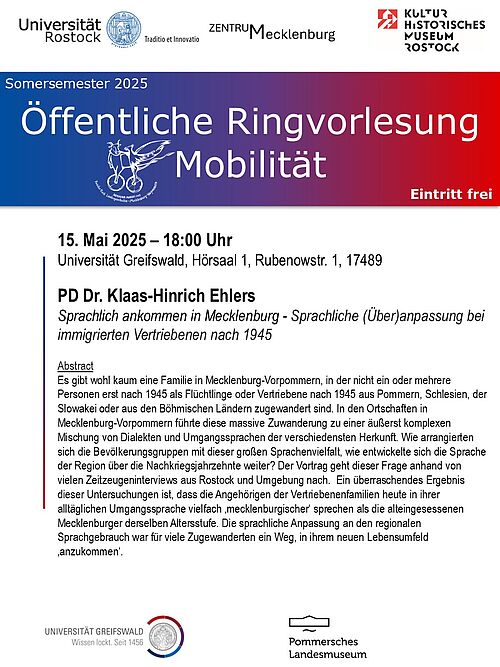There is hardly a family in Mecklenburg-Vorpommern in which one or more people did not immigrate after 1945 as refugees or displaced persons from Pomerania, Silesia, Slovakia or the Bohemian lands. In the villages of Mecklenburg-Vorpommern, this massive immigration led to an extremely complex mixture of dialects and colloquial languages of various origins. How did the population groups come to terms with this great linguistic diversity and how did the language of the region develop over the post-war decades? The lecture explores this question on the basis of many interviews with contemporary witnesses from Rostock and the surrounding area. One surprising result of this research is that the members of the displaced families today often speak more ‘Mecklenburg’ in their everyday language than the long-established Mecklenburgers of the same age group. For many immigrants, adapting to the regional linguistic usage was a way of ‘arriving’ in their new living environment.
Time: Thursday, 15.05.25, 18:00
Location: University of Greifswald, Lecture Hall 1, Rubenowstraße 1, 17489 or
Zoom uni-greifswald-de.zoom.us/j/9896944339
Speaker: PD Dr Klaas-Hinrich Ehlers (University of Rostock)
The rest of the lecture series programme can be found on the website of the Mecklenburg Centre:
www.zm.uni-rostock.de/forschung-lehre/mobilitaet-migration-und-kult

